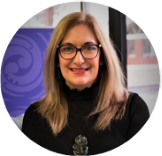 Amanda Malu
Amanda Malu
CEO, Whānau Āwhina Plunket
As a mother to three daughters my aspiration for the women of Aotearoa is that they know no boundaries to what they can achieve. I want them to feel supported to realise their full potential in whatever they choose to do and to feel uplifted by men and women alike. I have found the rhetoric of some of the recent debate and protest in New Zealand to be disheartening and believe we owe it to all women to take a stand and call it out for the misogyny it is.
From early in my career, I have focussed on supporting Māori rangatahi, in particular wahine, to embrace tertiary education and to follow their dreams. Today I can see that despite the growing numbers of Māori and Pasifika women in leadership roles across Aotearoa, a significant pay gap still remains. I would like to see greater recognition of the lived experience Māori and Pasifika women bring to New Zealand organisations, especially those aiming for equitable access to services or equitable outcomes for customers. This must flow through into appropriate remuneration for these women too.
“I would like to see greater recognition of the lived experience Māori and Pasifika women bring to New Zealand organisations.”
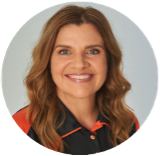 Andrea Scown
Andrea Scown
CEO, Mitre 10 (New Zealand)
I feel immensely grateful to have known many influential, strong, hard-working women in my lifetime. My Nanna went out to work full time in the 1950s when it was usual for women to be at home. She took a job in a lemon peel factory in School Corner, Papatoetoe. Her mother was a widowed dairy farmer who also worked incredibly hard. I’m proud to come from a long line of working women.
Women are a critical force in the labour economy, in raising families and in building the communities we care about that create a sense of belonging. Our values and our mindsets are not different in each of these contexts – that’s why we are so effective in leadership roles, because we bring more heart than ego to them.
New Zealand stands to gain hugely if we can break down traditional barriers, such as rigid work hours, pay inequality and parental benefit penalties, that prevent women from contributing the full value of their experience. My aspiration for the women of Aotearoa is to boldly choose your context, do it with courage and heart, and acknowledge your impact on the culture of the organisations and communities you live, work and play in.
“Our values and our mindsets are not different in [the contexts of labour economy, in raising families and in building the communities] – that’s why we are so effective in leadership roles, because we bring more heart than ego to them.”
 Claudia Smith
Claudia Smith
Chief Operating Officer (COO) & Co-Founder, APLYID
I would love to see more women continuing to follow their passions, dreams and careers regardless of if they have a family or not. I’d love to see businesses and the government really get behind and support this. I’ve seen too many smart, talented, motivated women drop out of the workforce, or take a back seat because they want to have a family and think it’s one or the other. I think the more we can create the opportunity and support for men and women alike to take a hybrid approach to childcare and maternity cover the better. The stats show, we don’t have a problem with women entering the workforce, but rather sticking with it and pushing into leadership roles. I’d also generally love to see many more women in tech and software development roles, as they are currently massively underrepresented in these areas. I believe that starts with education and inspiration
“I think the more we can create the opportunity and support for men and women alike to take a hybrid approach to childcare and maternity cover the better.”
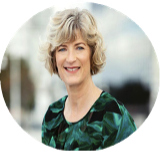 Denise Arnold
Denise Arnold
Director, Lyon O’Neale Arnold
I want to see Aotearoa New Zealand lead the World in placing Women on equal footing with men in terms of representation, opportunities, pay, power and leadership. Gender should not be a barrier to advancement, reward and recognition.
We need to have women and girls take their place in leadership and decision making at all levels from classrooms to boardrooms and naturalise it as a part of who we are.
I would like to see the current leaders and influencers in Aotearoa New Zealand create an inclusive culture where both men and women support and facilitate the development, growth and representation of Women throughout Aotearoa New Zealand and the world.
For the influential Women of Aotearoa New Zealand to:
- Remove obstacles, change mindsets and create opportunities for other women to grow into leadership roles or be recognised in those roles.
- Encourage women to be confident and empowered to take on bigger leadership challenges in Aotearoa New Zealand and on the world stage.
- Foster dialogue and raise awareness where there is institutional bias or historic frameworks which hinder the representation, reward or recognition of Women.
Historically, New Zealand has led the world in Women’s rights, however looking towards the future there are significant challenges we as anNation are going to face, and it is vital to have equal representation of women across all levels to enable us to move forward as a country. I want the Women in Aotearoa New Zealand to own their power and rise to whatever challenges await them knowing they have a community of powerful women behind them.
“I want the Women in Aotearoa New Zealand to own their power and rise to whatever challenges await them knowing they have a community of powerful women behind them.”
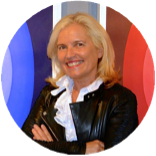 Helen Klisser During
Helen Klisser During
Advisor, Curator, and Photojournalist
To achieve the impact they are capable of. This aspiration hinges on three core values I hold: access, wisdom, inspiration and connection. Underpinning them all is my belief that through encouraging and developing diversity in our leadership in all realms, the positive effects ripple out.
Throughout my 25+ years of championing the arts, I have worked to uplift, showcase and empower women. This has required untiring movements towards the most high-impact projects, and cultivating wonderful relationships with the other women within them. What I learnt during my decades living in Connecticut, I have imported into everything I am now working on in New Zealand. Women’s work carries a certain weight, and with that weight comes an obstacle course. Having moved in male dominated spaces for a long time — and as a working mother at that — I am keenly aware of the importance and power of collectives such as this network.
This goal began early in life for me, as an athlete representing New Zealand in 1976. I broke my back during a downhill race at 80 miles per hour and spent 14 weeks in hospital. Four years later (supposedly retired from the NZ ski team!), I came back to race in the National Championships and became runner-up. My return became the subject of Terry McLean’s in his essay “They Do Come Back,” which first appeared in The New Zealand Herald in 1979, which served to show how the resilience of women is overlooked or seen as extraordinary. Bringing light to women’s resilience has been an important part of my career ever since.
Having women such as Helen Clark, former New Zealand Prime Minister and UN Administrator, Minister Carmel Sepuloni, Emma Gibbs, Mary Himes, Nadine Rubin Nathan and others by my side, has helped my work drive measurable impact and change through the arts and education.
In 2014, I curated an exhibition of Pulitzer Prize-winning photojournalist Lynsey Addario’s photo essay called On the Wire: Veiled Rebellion, a series of intimate and remarkable portraits of women in Afghanistan. I invited Lynsey (who is currently on assignment for the New York Times in Ukraine) back to her native Westport to share her experiences, and Helen Clark to join us and offer her own reflections on the realities portrayed by Lynsey’s photographs. The two women stood in stark contrast to the images of powerless Afghan women and children on display.In 2015, I co-founded with Mary Himes #UNLOAD: Artist Trigger a Conversation — a state-wide initiative to promote conversation through arts and education around the issue of gun violence in America.
In 2016, I was the still photographer for Gaylene Preston’s 2016 film “My Year with Helen: The Helen Clark Documentary.” Needless to say, capturing this journey through image bolstered my work advocating the power of the image to convey the importance of women and diversity in addressing the global crises of the 21st century.
“Underpinning [access, wisdom, inspiration and connection] is my belief that through encouraging and developing diversity in our leadership in all realms, the positive effects ripple out.”
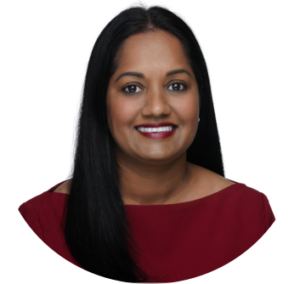 Ireen Rahiman-Manuel
Ireen Rahiman-Manuel
Founder and Director, Impactdev360
My aspiration for women in New Zealand is to be successful, in what they believe is a success, and as defined by them. Every woman has her own journey and every step they make towards becoming a better woman for herself, her family, and society, is a positive change. Often, we are too aspirational and tend to practice with a narrow lens so understanding the realities of women in their ethnic and sub-ethnic communities is important. Supporting women through their challenges to aspire to become better is one of the most important elements towards inclusive development.
I aspire that there comes a day that all women can be global citizens in their unique ways. I aspire that there comes a day where women of colour like me do not have to wait for 7 years till someone can nominate me to be a part of Global Women. I aspire that all women, regardless of their race, colour and identity, can have the same aspirations and opportunities accorded to them to self-nominate. Our barrier is in thinking that only some women can empower change when we know we all can collectively do this well.
My biggest aspiration for women in New Zealand is to be free of poverty, have access to timely health care, including sexual and reproductive health care, digital equity, food, shelter, and education. These are basic human needs. When we remove women from the poverty of education and wellbeing, we remove generations out of poverty. In my many years as a development consultant, this is my first mantra. If we want to see a successful society, we have to invest more in our women and the wellbeing for our children.
“When we remove women from the poverty of education and wellbeing, we remove generations out of poverty. If we want to see a successful society, we have to invest more in our women and the wellbeing for our children.”
 Isobel Kerr-Newell
Isobel Kerr-Newell
Managing Director, MSL Group
My aspirations for the women of Aotearoa are for every woman to have authentic equity and for our society to move beyond awareness to action. I want women to be represented, recognised and rewarded equally.
As someone who has risen to the highest ranks of a male dominated field (advertising), I have long been the only woman in the room and now though the agency I am building for Publicis Groupe in New Zealand, it is my vision to change that for the next cohort of women coming through, both in my industry and across Aotearoa.
I have long been an active campaigner for women in the creative and communications sectors, calling out the biases that are still in play through thought leadership and speaking opportunities, pressing agencies to implement quotas for suppliers to start changing entrenched behaviours, campaigning for new policies such as universal parental leave, taking an active role in Publicis 26 Groupe’s VIVA Women and supporting and mentoring the next generation of female leaders in my industry.
After the birth of my daughter in 2018, my resolve to create change for all women was further strengthened and I will not rest until I see the change that she and every woman in Aotearoa deserves.
“For every woman to have authentic equity and for our society to move beyond awareness to action.”
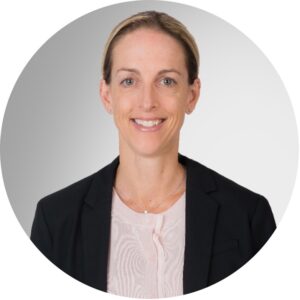 Rachael McDonald
Rachael McDonald
Consultant
There needs to come a day where there is not a glass ceiling, nor a glass vacuum for that matter. A leadership role and/or a position of significant influence that is based solely on merit is the ultimate goal where women (of any background, ethnicity, religious belief, physical ability, sexual orientation etc) naturally hold 50% or more of such positions. No one should bat an eyelid.
I want my daughters and my son and their friends to support each other and anyone else in this way and to feel that they, like everyone else, have an equal opportunity to reach as high as they can and are able.
“I want my daughters and my son and their friends to support each other … to feel that they, like everyone else, have an equal opportunity to reach as high as they can and are able.”
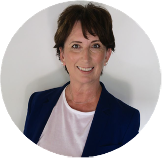 Rachel Callaghan
Rachel Callaghan
General Counsel & Company Secretary, MediaWorks
My hope for young women of Aotearoa New Zealand is that they have the confidence and ambition to seek out opportunities to further themselves both personally and professionally — that they don’t wait for the door to open but they give it a push.
My hope is that young women learn to put up their hand for opportunities and that they are not intimidated by what they don’t know. If there is something they want to learn more about, a skill that they want to gain, or a role they are interested in, they have the confidence to seek out a person who can help them with their goal. My hope is that they can see and identify with role models who they can access and connect with.
And for those role models, I hope that they recognise their roles as female leaders to bring the next generation along. As the saying goes “if you can’t see it, you can’t be it” so senior women have a responsibility to be seen. Global Women gives them the platform to do that.
“That [young women] don’t wait for the door to open but they give it a push.”
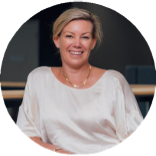 Rachel Walsh
Rachel Walsh
Chief Financial Officer, Datacom Group
I am a huge supporter of STEAM education for girls. While STEM has been a buzzword in education for several years now, I prefer STEAM as it incorporates Arts which I believe is very important for creative thinking and enables problems to be approached from diverse angles and adds the balance needed to STEM. I am fortunate that my two daughters in secondary school both enjoy and strive for success across the range of STEAM subjects and are encouraged at school to pursue careers in these areas. As a senior leader at Datacom, I support the firm’s Women in IT events and actively encourage the need for inclusion and diversity within my span of control and influence across the Datacom group.
Whilst we cannot downplay the importance of encouraging young girls in education for their future, I firmly believe the biggest difference for achieving gender neutrality success in the future is a societal change to full equality and equity at home. I see many talented women drop out at the point they are juggling two or more children and full-time work, this is becoming even more exaggerated globally with the experiences of women working from home during covid. I would love to see a more concerted change in balance of family and communities supporting working parents whether that’s through flexible working with no stigma attached or fully funded childcare to achieve equitable sharing of parenthood.
“Whilst we cannot downplay the importance of encouraging young girls in education for their future, I firmly believe the biggest difference for achieving gender neutrality success in the future is a societal change to full equality and equity at home.”
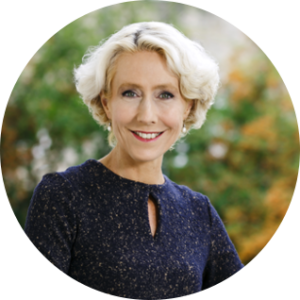 Samantha Barrass
Samantha Barrass
CEO, New Zealand Financial Markets Authority
Samantha’s strength lies as a leader of significant strategic transformation programmes. A board level Chief Executive Officer, her career has seen her build alliances while bringing the vision, courage, tenacity and stakeholder engagement necessary to do the right thing and deliver game changing results, to exacting deadlines.
Samantha has built a career in financial and legal services regulation and public interest policy delivery spanning more than 20 years across many locations and companies. She has delivered an innovative alternative dispute resolution service as the CEO of Business Banking Resolution Service. Additionally, Samantha was the Gibraltar Financial Services Commission Chief Executive Officer and member of the Board of the GFSCChair Gibraltar Investor Compensation Scheme Member Gibraltar Financial Services Resolution and Compensation Committee. Previously, she was involved independently as a non-Executive on PwC UK’s Public Interest Body.
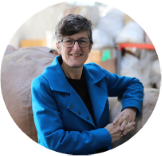 Sue Bidrose
Sue Bidrose
CEO, AgResearch
My aspiration for women in Aotearoa probably matches those of most women. That girls in New Zealand have the opportunity, the support, the role models, the encouragement to fulfil their potential — our girls need to know they can actually can do anything, to hark back to the slogan of the ‘80s. That our young women get the education they need to set up their life trajectory in the best possible way for their future. That the structures of the state and commerce are such that working women can thrive through motherhood and beyond. And that prejudice, whether overt and vile or a subtle lacking of expectations, it tackled at its root.
This means that we provide community support for our children – they have safety from predatory adults, from bullying. That there is support in place to be easily accessed by those who face impediments – tough home circumstances, disabilities, racism, gender identity issues, and anything else that makes them ‘different’. And support for older women to age in their home and have the dignity we all desire towards the end of our lives.
As I look across the membership of Global Women, I am struck by the number of competent, successful women who have put their hand up to say, ‘I will do more’. I will work with young women; I will mentor emerging women scientists. I will volunteer at a shelter. I will give my time to assist the refuge with financial strength. I will lobby government for improved well-being policies. That is a group I want to be a part of.
“That the structures of the state and commerce are such that working women can thrive through motherhood and beyond.”

